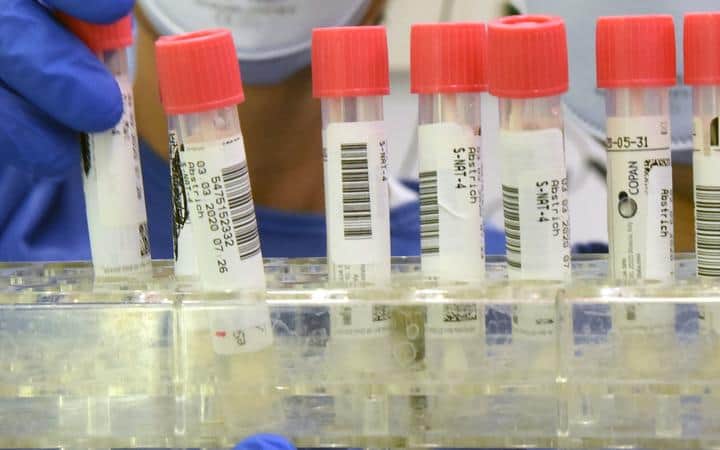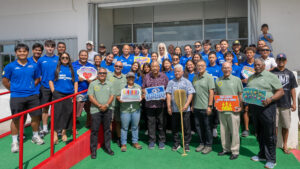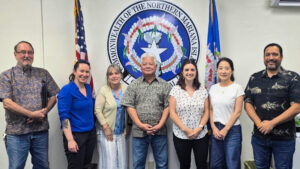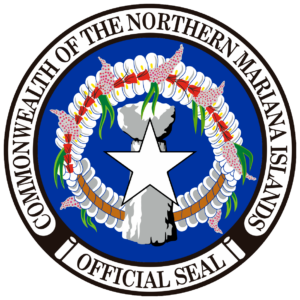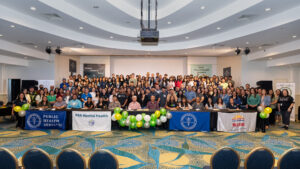The Governor’s COVID-19 Task Force and the Commonwealth Healthcare Corporation (CHCC) announced on Tuesday, August 18, 2020, that the CNMI Community-Based Testing (CBT) Initiative will resume for the next four weeks starting Wednesday, August 19, 2020.
Below are the updated CBT dates for Saipan, Tinian, and Rota:
| Island | Date | Time | Location | Drive-Thru/Walk-Up |
| Saipan | 8/21/2020 | 8:30 am – 11:00 am | Garapan Fishing Base | Both |
| Tinian | 8/19/2020 | 9:00 am – 11:00 am 1:00 pm – 3:00 pm | Tinian Health Center | Walk-Up |
| Rota | 8/19/2020 | 1:00 pm – 4:00 pm | Rota Health Center | Walk-Up |
Since April 28, 2020, the CNMI Community-Based Testing Initiative has tested 12,681 people for COVID-19 on Saipan, Tinian, and Rota. This is approximately 24 percent of the CNMI’s population.
The Governor’s COVID-19 Task Force and CHCC remind the public that getting tested for COVID-19 does not improve response to the illness, nor does it reduce the risk of contracting or transmitting the disease. People who are tested and have a negative result, are still vulnerable to the virus.
The Task Force and CHCC continue to encourage residents within the Marianas to practice the 3 W’s – Wash your hands, watch your distance, and wear a face covering.
The 3 W’s
Wash your hands. Watch your distance. Wear a face covering.
- Wash your hands for at least 20 seconds with soap and water, avoid touching your face, cover coughs and sneezes with a tissue or your sleeve.
- Use an alcohol-based hand sanitizer if soap and water are not readily available.
- Practice social distancing, which means avoiding close contact with people in order to avoid catching the virus yourself and to avoid passing it on to others.
- The more people an individual interacts with at a gathering and the longer that interaction lasts, the higher the potential risk of becoming infected with COVID-19 and COVID-19 spreading.(https://www.cdc.gov/coronavirus/2019-ncov/community/large-events/considerations-for-events-gatherings.html)
- Wear a face covering
- Be cautious when dining out and pick up food through drive-thru, take-out, or delivery options when possible.
- Only one healthy adult from the household should run necessary errands, such as getting groceries or picking up medications. Leave children, elderly, and other vulnerable people at home as much as possible. When returning home from an errand, wash your hands before doing anything else.
- Older adults and people with chronic medical conditions are at higher risk of getting very sick from this illness. People at high risk should stay at home as much as possible.
- Create a household plan of action https://www.cdc.gov/coronavirus/2019-ncov/prepare/checklist-household-ready.html
- Ensure a 30-day supply of all medicines.
Know the signs and symptoms of COVID-19 and what to do if you become symptomatic:
- Stay home when you are sick and if you recently traveled to a place with COVID-19. Self-quarantine means:
- Avoid or limit visiting public places. Do not visit your place of work. You may leave to get necessary medical care, food, or other supplies if no one else in your household is able to fulfill these needs for you.
- Separate yourself from others in your home, especially if you are experiencing symptoms or if others in your home are not in quarantine. Limit visitors
- Stay in a separate room and use a separate bathroom if possible.
- We encourage you and people in your household to wear a face covering.
- Wash your hands often with soap and water for at least 20 seconds. If soap and water are not available, use an alcohol-based hand sanitizer.
- Clean and disinfect frequently touched objects and surfaces.
- Cover your coughs/sneezes with a tissue, then throw the tissue in the trash. If there is no tissue, use your sleeve. Not your hands!
- Practice social-distancing and wear a face-covering. If you need to go out, maintain at least 6 feet distance away from others. Avoiding touching your eyes, nose, and mouth with unwashed hands.
- Take your temperature and keep a log of any symptoms you might have. A fever is 100.4°F or 38°C
The CHCC and the Governor’s COVID-19 Task Force appreciate the patience and understanding of the community at this time.
The Governor’s COVID-19 Task Force continues to manage COVID-19 inquiries and residents
are encouraged to utilize this resource for additional information.
The Task Force hotline numbers are 237-8034, 8035, 8036, and 8037. These numbers are available every day from 7:30 am to 6:30 pm.
For mental health support and helpful tips during a crisis please call the Mental Health Support Line at 323-6560 or 323-6561 These numbers are available Monday to Friday 7:30 am – 4:30 pm. For the 24/7 Disaster Distress Helpline please call SAMSHA at 1-800-985-5990.
For more information about DIY face coverings, please visit https://www.cdc.gov/coronavirus/2019-ncov/prevent-getting-sick/cloth-face-cover.html
For more information about CHCC programs, please follow CHCC on Facebook, Instagram, Twitter at @cnmichcc, check out our website at www.chcc.gov.mp or call us at (670) 234-8950.
For more information on the Governor’s COVID-19 Task Force, visit governor.gov.mp and please follow @GovernorCNMI on Facebook, Instagram, and Twitter.
Rumor Control – Stop the Spread of Misinformation
During crises like this, oftentimes the spread of misinformation is just as dangerous as the virus itself. The CNMI is reminded to only share official and verified notices, press releases, and advisories from the Governor’s COVID-19 Task Force and CHCC.
CHCC Point of Contact:
Lee Tenorio
(670) 234-8950 Ext. 3445
Governor’s COVID-19 Task Force Point of Contact:
Kevin Bautista
covid-19@gov.mp
For more information about CHCC programs, please follow us on Facebook, Instagram, and Twitter at @cnmichcc, check out our website at www.chcc.gov.mp or call us at (670) 234-8950.
This press release may be found online at http://www.chcc.gov.mp/pressrelease.html and at www.governor.gov.mp/covid-19.
# # #

